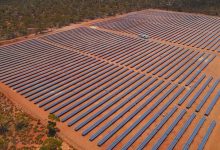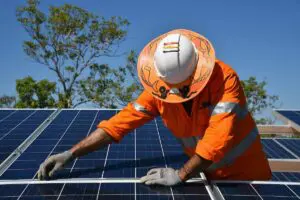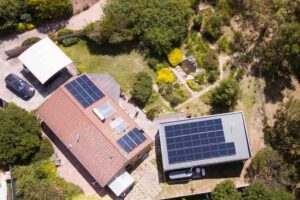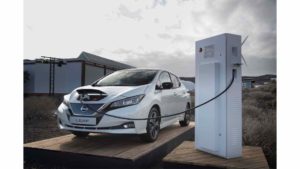Remote power system company Zenith energy has deployed a solar-diesel hybrid generation system at a remote Western Australia mine site, that the company believes will be one of the first such systems that shows the technology is commercially viable without the need for government subsidy.
The 26.6MW hybrid Solar PV and diesel facility has been installed at the Nova Nickel‐Copper‐Cobalt Operation in the Fraser Range of Western Australia, operated by the ASX-listed Independence Group NL.
The system includes a 5.5MW solar farm, with single-angle tracking, that will help avoid an estimated 6,500 litres of diesel consumption on a daily basis. The financial savings generated through the avoided diesel costs made the system commercially viable, with the project requiring no government grants or direct support.
The incorporation of solar PV into the power system will also help to reduce the greenhouse gas emissions produced by the mine’s operation by up to 6,500 tonnes each year.
“We are absolutely thrilled with the performance of the system to date. Importantly, this is the first hybrid Solar PV‐diesel installation that has been funded on a commercial, standalone basis – without any Government subsidies,” Zenith Energy managing director Hamish Moffat said.
“As a local, independent power producer we are proud to be at the forefront of delivering cost effective energy solutions that improve environmental outcomes for Australia’s resources industry.”
Zenith Energy specialises in the deployment of remote, off-grid, power systems, and has established a portfolio of more than 400MW of generation capacity, that predominantly supplies mining operations across Australia and Papua New Guinea.
The company has historically focused on systems that supply using gas and diesel, with the hybrid project representing the company’s first step into incorporating solar power.
While the system will not include battery storage, the company has developed system management software that will allow the diesel generator to manage variation in solar output effectively.
The company sees solar power as a cheaper alternative to running a remote grid completely on diesel-fuelled generation, but the cost of battery systems remains prohibitive for the time being.
“The proprietary hybrid system developed by the Company is able to seamlessly manage the fluctuations in solar PV energy production to provide smooth, reliable power, without the need for batteries to stabilise energy delivery to Nova,” Moffat added.
“Batteries have their place in energy systems, but they are still expensive to deploy for these applications. Our unique locally developed hybrid system eliminates the need for batteries and represents a major step forward in the capital cost optimisation, operating efficiency and environmental performance of Solar PV hybrid energy systems in remote locations.”
The Australian Renewable Energy Agency has supported several demonstration projects, showing how renewable energy technologies can be incorporated into remote and off-grid electricity supplies.
Solar power is often a good match for remote hybrid systems, which are often situated in parts of Australia with ample solar resources, with diesel generator sets serving as a complementary supply of power as needed.
In 2014, the DeGrussa copper mine installed a 10.6MW solar PV plant, which allowed for a 20 per cent reduction in the site’s diesel consumption. ARENA supported that project with $20.9 million in grant funding.
The latest project from Zenith Energy shows that using renewables to supply at least part of the power to remote resources projects are now commercially viable in their own right, without the need for subsidies.
In May, the WA government announced that it would commit up to $11.6 million to support the role out of hybrid solar-diesel projects throughout remote WA, in partnership with Aboriginal corporations, that will help reduce costs and reliance on diesel in six remote communities.










